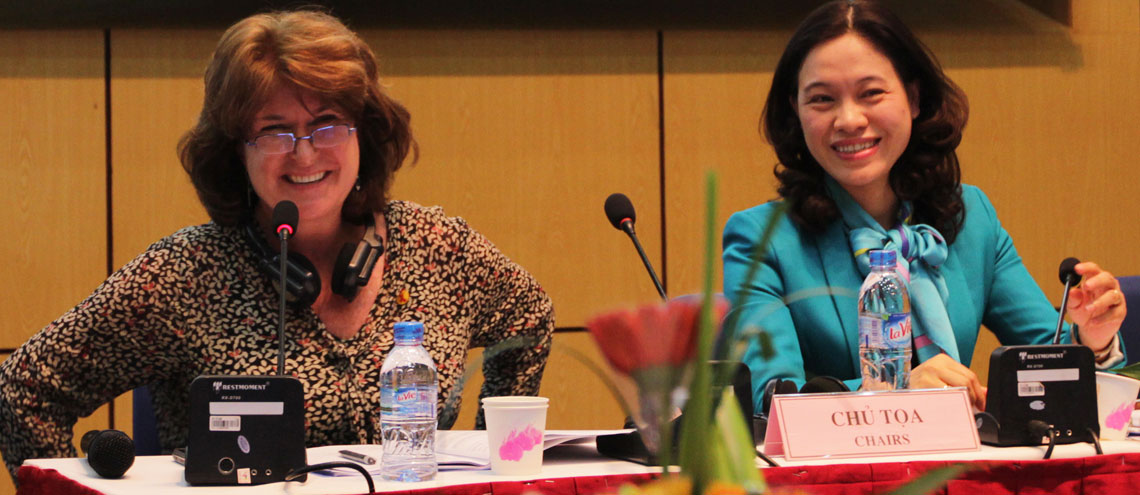UNAIDS Takes Action to Empower Women and Girls to Protect Themselves from HIV
UN to support civil society and governments to address gender inequalities and human rights violations that continue to put women and girls at risk of HIV infection
Hanoi, 5 March 2010 – UNAIDS launched on 2 March an Agenda for Accelerated Country Action for Women, Girls, Gender Equality and HIV (2010–2014), which has been developed to address gender inequalities and human rights violations that continue to put women and girls at risk of HIV infection.
See the Fact sheet on Women, Girls, Gender Equality and HIV here
The five-year action plan was launched at a high-level panel during the 54th meeting on the Commission on the Status of Women, being held in New York until 12 March. It calls on the UN system to support governments, civil society and development partners in reinforcing country actions to put women and girls at the centre of the AIDS response, ensuring that their rights are protected.
“Violence against women is unacceptable and must not be tolerated,” said Michel Sidibé, UNAIDS Executive Director. “By robbing them of their dignity, we are losing the opportunity to tap half the potential of mankind to achieve the Millennium Development Goals. Women and girls are not victims, they are the driving force that brings about social transformation.”
UNAIDS and partners will support the country roll-out of the Agenda for Action including among others the improvement on data collection and analysis to better understand how the epidemic affects women and girls; ensuring that violence against women is integrated into HIV prevention, treatment, care and support programmes; analyzing the impact of socio-cultural and economic factors that prevent women and girls from protecting themselves against HIV; and, supporting women’s groups and networks of women living with HIV to map commitments made by governments on women and HIV.
Also in an effort to address the gender inequality dimension of the epidemic, UNAIDS and UNIFEM in Viet Nam initiated a rapid assessment of the situation of HIV transmission from men to women in intimate partner relationships which has resulted in a draft discussion paper on the issue.
This forthcoming paper, aimed to support policy dialogue on the issue, highlights the correlation between gender relations and HIV, particularly between men and their spouses or long-term female partners and suggests priority actions to curb this on-the-increase HIV transmission mode in the country.
“Women and girls should be able to protect themselves from HIV transmission via unprotected sex and we need to take this into account when revising the national HIV response strategy and devising new plans for HIV prevention services,” said Eamonn Murphy, UNAIDS Country Director and Chair of the Joint UN Team on HIV in Viet Nam.
Focused on country-level action, capitalizing on the role of the Joint UN Team on HIV and fostering country leadership, the Agenda for Action will be helpful for Viet Nam to accelerate progress towards Universal Access to HIV prevention, treatment, care and support and the Millennium Development Goals, he added.
Contact: Nguyen Thi Bich Hue | tel. 3 822 4383 ext.105 | bichhuen@unaids.org



